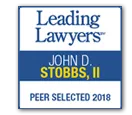This Wednesday, the Seventh Circuit issued an interesting opinion regarding police shootings. On November 12, 2007, Jerome Weinmann celebrated his one year anniversary with his wife by guzzling half a bottle of vodka, holing himself in his garage with a shotgun, and taking four bullets from a responding police officer. When Officer McClone arrived at the scene and entered the garage, he shot Weinmann immediately.
Prior to opening fire, Officer McClone understood four things: that Jerome possessed a shotgun, he may have been suicidal, he had not answered the officer’s knocks on the garage door, and that “pattering” sounds could be heard from inside the garage. Armed with only that information and his service weapon, McClone burst into the garage and shot Jerome four times in the face, thumb, and torso. Miraculously, Mr. Weinmann survived the encounter and filed a civil suit against officer McClone.
While not a criminal case per se, Weinmann v. McClone represents interesting precedent for future cases regarding police force. A recurring theme of this blog has been the appropriateness of police conduct and the lack of restraint thereof. Cynics might consider police officers effectively immune from criminal consequence. Just this month, a Cleveland police officer was acquitted of manslaughter after firing 137 rounds at two unarmed civilians from the hood of their own car.
Perhaps then, civil remedies like the claim filed against Officer McClone might represent a means of curbing police violence, and the language of the opinion seems to illustrate high concern for police violence in spite of a legal climate which has long refused to restrain such behavior.
As a threshold matter, the Seventh Circuit makes the unsurprising finding that “Jerome has a constitutional right not to be shot on sight.” More importantly, the court notes that the primary consideration for determining the legality of police force lies in the “quality of the information known to the officer at the time he fired the weapon.” In this case, the fact that the officer felt threatened by entering into an enclosed space with an assailant does not justify deadly force alone – even when that enclosed space houses and shotgun-wielding drunk.
So what can be deduced from Weinmann? First, the Seventh Circuit has created a line of favorable precedent for victims of police violence. The extent to which that may affect police behavior remains to be seen. Also, the case seems to signify that federal courts are becoming increasingly sensitive to police violence and its pervasiveness. Finally, and perhaps most interestingly, this case seems to debunk, somewhat, the viability of the argument that police fear might justify deadly force. Of course, police may and should use force when necessary to prevent imminent, critical danger to themselves or the public, but a case like this demands a cool head and considerate action – even in the most intense situations.
Sources: Weinmann v. McClone, No. 14-1794 (7th Cir. May 27, 2015).




